HRT National Broadcaster to Air Series About NDH
ZAGREB, 14 Sept, 2021 - "NDH", a series of the Croatian Radio Television (HRT) about the Ustasha-ruled Independent State of Croatia, will start on Monday, 20 September and its author, historian Hrvoje Klasić, says it should have been aired much sooner, while the HRT rejects claims about deliberately not broadcasting the series.
"I only know that this series should have been finished much sooner. But it hasn't been. And that was not because of us as the crew, and it should have aired sooner. Again, not because of us, but because of the HRT," Klasić told Hina.
On the other hand, the public broadcaster's acting Director-General, Renato Kunić, said that no show had been deliberately not aired during his term as the director of programming and during his colleagues' terms.
He added that the NDH series was put on hold for several reasons. More specifically, an adequate schedule had to be found for the 12 episodes because that is three months of airing, and the programme budget has its rules, Kunić said.
He also said that the series cost about HRK 1.5 million and that the difference between the six episodes initially proposed by Klasić and the 12 realised episodes was about half a million kuna, and he stressed that this was a matter of assessment when to air the programme and not a ban, adding that the series was finished in June 2020.
Both Klasić and the HRT agreed that this was a long-awaited project in which about 30 members of the academic community and historians would talk about the NDH, and it would be illustrated by over two hours of film material on the NDH, purchased from the Yugoslav Film Archive.
Klasić underlined the valuable contribution of HRT's director and co-writer Miljenko Bukovčan and editor Iva Blašković.
Klasić: Series is neither ideological nor tendentious
"I would like to warn the viewers -- there are 12 episodes and this was not done in an ideological or tendentious way," Klasić said, adding that the series was not chronological but organised thematically.
"Everything that is said is enough to understand that moment -- the temporal, socio-political context, to understand what that state was and what kind of life its citizens had," he said.
The goal was not, he pointed out, to create a lexicon in which everything would be listed, but to give a description and an analysis of a time, and top experts from the entire region and Europe helped with that.
Klasić also explained his statement in Jutarnji List daily that "there are no conflicting opinions, but only because right-wing historians did not want to participate".
"When we talk about the NDH, there are no conflicting opinions among historians and scientists who care about their scientific reputation. Not among scientists in Zagreb, Belgrade, Sweden or in Washington," Klasić said.
Some have merely focused more on a particular period. Of course, there may be different opinions on how to approach the number of victims in Jasenovac or after Bleiburg, he added.
"However, when we talk about the character of the Ustasha-ruled state, the NDH, about the character of the Jasenovac camp or about what happened in May 1945, there is in principle no disagreement," Klasić said.
The series was shot on numerous locations, from the Vatican and Sachsenhausen, to Bleiburg and Jasenovac, Janka Puszta (Jankovac), but also Florence, where there is still the villa which Ustasha leader Ante Pavelić, Klasić said, got for his services in the future annexation of parts of the Croatian Adriatic as Mussolini's "man for special assignments".
Special episodes are dedicated to the economy and culture during the NDH, as well as the relationship between the Ustasha regime and the church.
"A large part of the series focuses on the relationship between the Roman Catholic Church and the Ustasha movement. Many say that the Church used the Ustasha, but I believe that it was vice versa and many historians agree on that. Alojzije Stepinac was not a war criminal but he definitely was not an example of antifascist resistance," said Klasić.
As for possible negative reactions to the series, Klasić said he expected them from those who "have been reviving the NDH for the past 30 years."
"It is to be expected because we live in a country where abnormal things have become normal, including the Ustasha salute, where about 20 streets have been named after members of the Ustasha regime and where there are associations that deny Jasenovac," Klasić said.
For more about politics in Croatia, follow TCN's dedicated page.
Vinkovci Film Week 2020 Begins
August 17, 2020 - Now a much-enjoyed highlight of the city's cultural calendar, the Vinkovci Film Week festival pairs the 14-year-old DORF music documentary festival with the Classical Antiquity Film Nights. Here's what to expect...
At just four years old, Vinkovci Film Week has become a much-loved highlight of the Slavonian town's cultural calendar. Given its age, it's less surprising that it's become so when you find out its component events are actually very well established.
The film week actually pairs a 14-year-old music documentary festival, DORF, with the 8-year-old Classical Antiquity Film Nights. Beginning tomorrow, Tuesday 18 August, and running until Saturday 22 August, here's what you can expect to see...
Classical Antiquity Film Nights at Vinkovci Film Week
Tuesday 18 August
20.30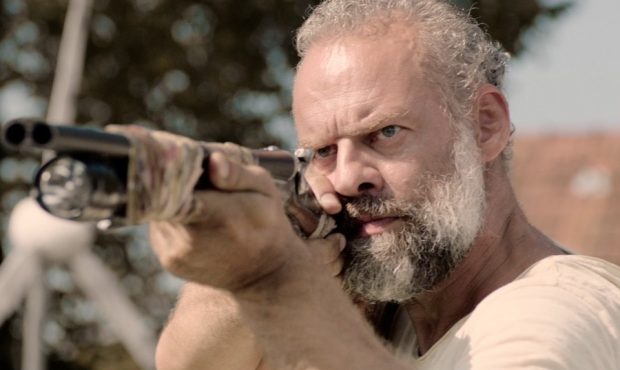
'The Last Well / Posljednji bunar' directed by Filip Filković (2017, Croatia), is a dystopian tale set in a dry Croatian hinterland, where the last source of drinking water has a significant impact over life. It has won more than 30 festival awards.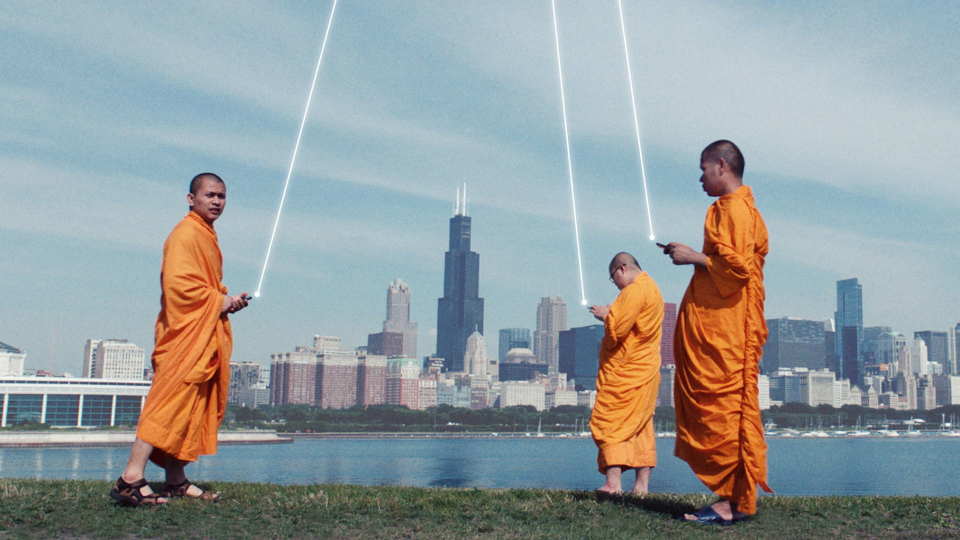
Immediately following is 'Lo and behold: reveries of the connected world' (2016, USA) by iconic German-American film and documentary maker Werner Herzog. The viewer is taken on a journey through a series of provocative conversations revealing how the internet has changed (and continues to change) the functioning of the real world and life itself - from business to education, from space travel to healthcare, as well as the very core of our private relationships.
Wednesday 19 August
20.30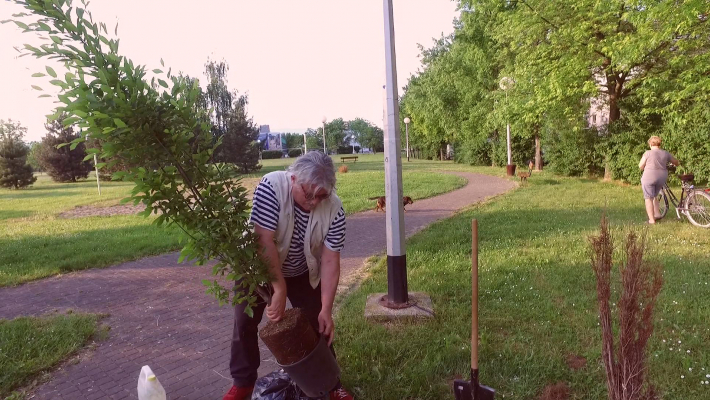
Dalibor Platenik's 'Man and Tree / Čovjek i drvo' (2019, Croatia) looks at the life of Vladimir Dimić Joda, who lives in the centre of Zagreb and spends his days hanging out with trees. He started planting trees anonymously more than 30 years ago and has so far planted more than 450 of them. He talks to them, waters them, and tends for them. In doing so, he feels he is returning a debt to Mother Earth. Vladimir Dimić Joda was actually born in Vinkovci and is a frequent visitor to the town.
DORF music documentary festival at Vinkovci Film Week
Thursday 20 August
20.30
'Grace Jones: Bloodlight and Bami' (2018, USA) is a human portrayal of the intangible Jamaican icon. Through her modelling and music, Grace Jones has provocatively and unflinchingly bared all to the public. While examining these elements of her career, this documentary shows what few have ever seen before; the very real person that lies beneath the enigma.
Friday 21 August
20.00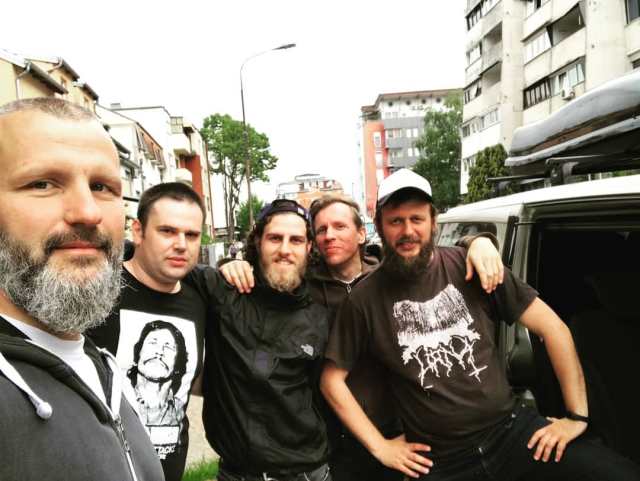
Premiering at the festival, short film 'xYUGOx' (2020, Croatia) follows Croatian-Serbian hardcore punk band The Truth in preparation for a two-week European tour and asks how their straight-edge lifestyle (eschewing alcohol, tobacco, and all other drugs) impacts such an undertaking.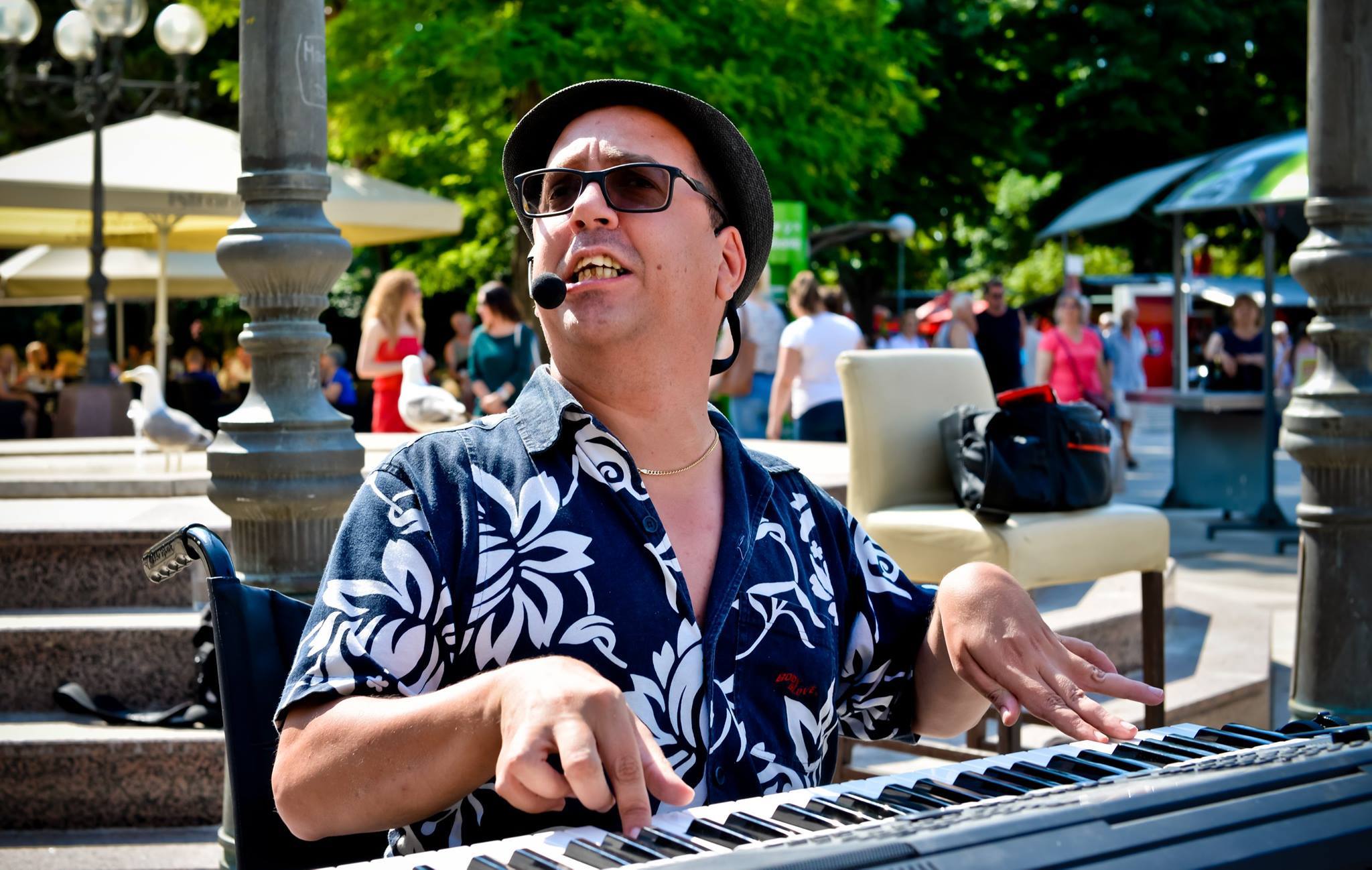
Also premiering here, 'Erik' (2020, Croatia) is a portrait of composer, singer, keyboardist, and award-winning songwriter Erik Balija, whose cerebral palsy restricts only his physical movement, not his spirit.
21.30
Another premiere, 'New York: The Pilgrimage' (2019, Macedonia) follows a Macedonian hip hop obsessive as he makes a once-in-a-lifetime journey to the city which birthed his passion.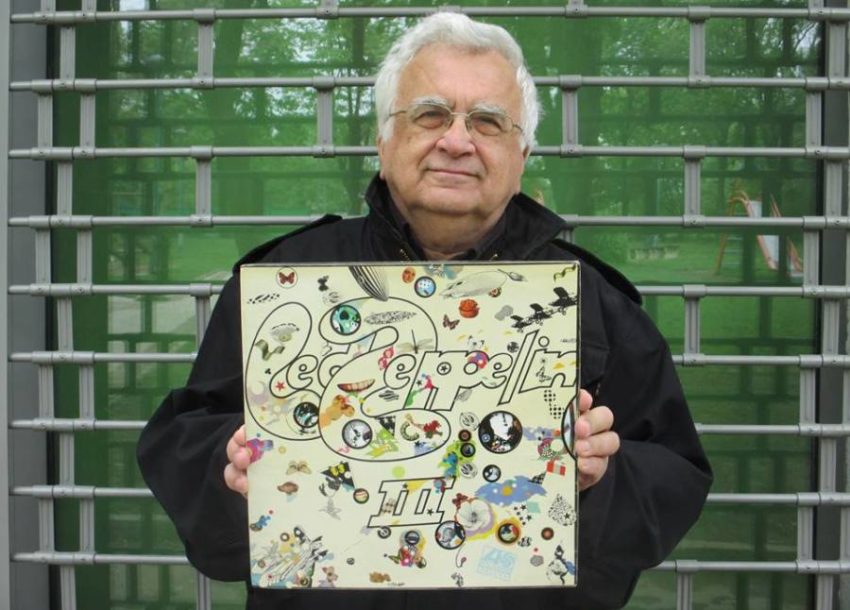
'Winners Are Boring / Pobednici su dosadni' (2018, Serbia) is a portrait of life-long music fanatic, publicist, and journalist Žikica Simić, examining the impact the cult radio shows he has helmed have had on many.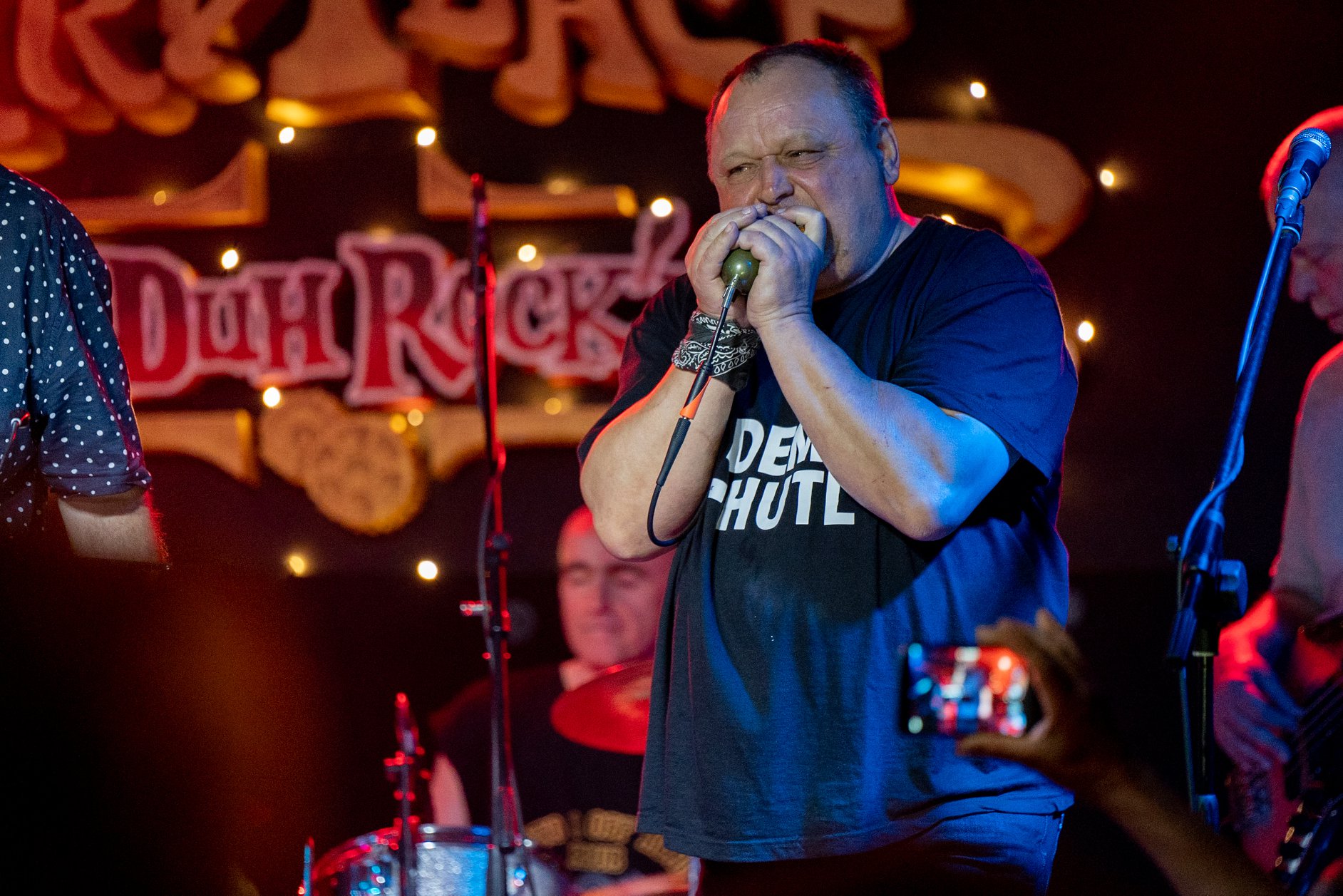
'Sonnyboy iz Stubičke Slatine' (2019, Croatia) looks at the life of Krešo Oremuš from rural Zagorje. By day, Krešo is a metal worker. By night, he's a blues music fanatic and one of the country's greatest blues harmonica players.
Saturday 22 August
20.00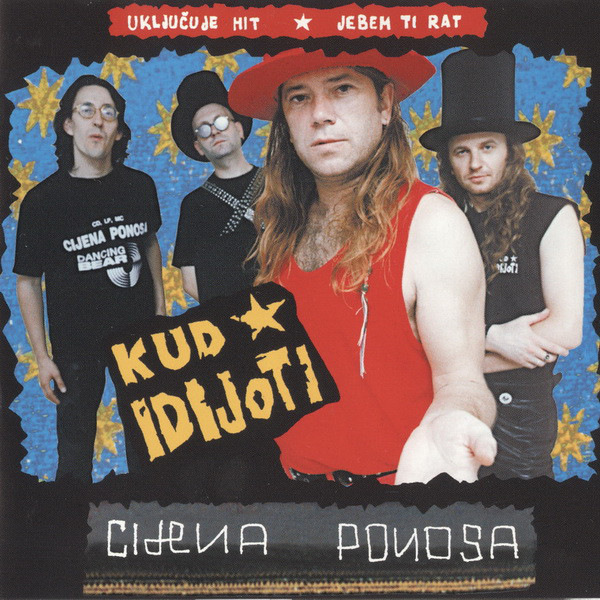
'Tusta' (2019, Croatia) is a biography of Branko Črnac Tusta, the leader of infamous Pula punk-rock band, KUD Idijoti. Because of his uncompromising anti-fascist and tolerant stance, this true working-class hero was considered a "communist" in the 1990s, and his music all but banned from Croatian media and music outlets. The band were not deterred. KUD Idijoti were the first Croatian band to perform a concert in Serbia after the war.
Srbenka by N. Slijepčević to Become First Croatian Documentary on HBO
After several recent success stories by some Croatian movies and TV shows on the various international broadcasting platforms, that we've already extensively written about (such as The Paper, You Carry Me and others), more good news coming from one of those platforms: Srbenka, a documentary by Nebojša Slijepčević is going to appear on HBO!
It premiered last year in Rijeka and has since received numerous awards at Croatian and international festivals (awards in Cannes, Sarajevo, Linz, Warsaw; the European Film Academy put it on their list of the top 15 European documentaries in 2018). The documentary's television premiere will take place on June the 20th on HBO.
The documentary, as we've already reported, follows the preparation and the rehearsals for the theatre play "Aleksandra Zec" by Oliver Frljić, which was performed at the Croatian Cultural Centre in Sušak, Rijeka. It deals with the devastating topics of nationalism and xenophobia through examining the lives of the children that are part of the Serbian minority, and who were born years after the Homeland War was finished. The title of the play is the name of the 12-year old girl who was killed along with the rest of her family on the eve of the Homeland War in Zagreb.
Nebojša Slijepčević, the director, said that he sees HBO as the most important production company in the world, that values the original documentaries which don't shy away from difficult topics. He's happy that Srbenka will be the first Croatian documentary on the platform, and he hopes that they will pave the road for other Croatian documentaries. He stresses the fact that many high-quality documentaries are made in Croatia, so he hopes that Srbenka won't be the sole entry in HBO's documentary catalogue. He hopes that Croatian audiences will get to see the documentary on Croatian Radiotelevision, not only on HBO.
After this story was originally published, HBO confirmed to us that Srbenka will be shown on HBO channels and later available online in the Adria Region (meaning Croatia, Serbia, Bosnia and Herzegovina, Slovenia, Macedonia, Montenegro and Bulgaria). The premiere on the HBO channel will be on June 20th, at 9:25 pm, and it will be available online from June 1st.
And Vanja Jambrović, one of the producers of the film, confirmed on Facebook that Croatian Radiotelevision will not be showing this documentary, as she'd received an email informing her of that decision.
Fifth Season of KineDok Taking Place in Seven European Countries
And Croatia is, of course, one of the countries participating in the joint project KineDok, organized by seven European movie organisations for the alternative distribution of the creative documentaries. On Monday, March 25th, the simultaneous projection of the Bulgarian movie "Every Wall is a Door" by the author Elitza Gueorguieva was held in Zagreb (in Dokukino KIC), Split (newly opened Beton theatre in Youth Centre), Brașov, Reșița, Prague, Sofia and Bratislava. The film's author was the guest of honor at the projection in Bratislava, and after the projection a conversation with her was streamed in all movie theatres in other countries as well.
The project will last until the end of the year and more than 25 locations in Croatia alone will be participating in it. Zagreb, Split, Varaždin, Đakovo, Zabok, Karlovac, Delnice, Novi Vinodolski, Metković, Pula, Lopar, Križevci, Bjelovar, Sinj, Požega, Krapina, Umag, Zadar, Marija Bistrica, Silba, Hvar, Malinska, Rab, Rijeka, Risnjak National Park are the participating places in Croatia, with some of them having more than one theatre where the documentaries will be shown during the year (some of the locations are open-air theatres, so those will be utilized during the warmer and less rainy part of the year).
Croatian and other Central-European viewers will have the opportunity to see 14 fresh, award-winning documentary films. Among them some stand out, such as the controversial Hungarian documentary on the modern slavery "A Woman Captured" by the director Bernadett Tuza-Ritter, nominated for the European Film Awards, Croatian-Czech co-production "When the War Comes" by Jan Gebert, Croatian film "Days of Madness" by Damian Nenadić, Norvegian "Brothers" by Aslaug Holm and a new hit by the documentary film master, Russian Vitali Manski Putin´s Witnesses, which was shown on ZagrebDox this year.
This year, the KineDok project will also take another step closer to its potential viewers, as the documentary films shown during previous years of this project will be available online throughout the year. It's an interactive video platform at DAfilms.com. Each visitor to any of the projections will be given an invite code that will allow them to access that library and see all films they've potentially missed over the years.
Nikola Tesla Documentary
Born in Croatia, one of the greatest minds in physics, electrical and mechanical engeneering - Nikola Tesla.


